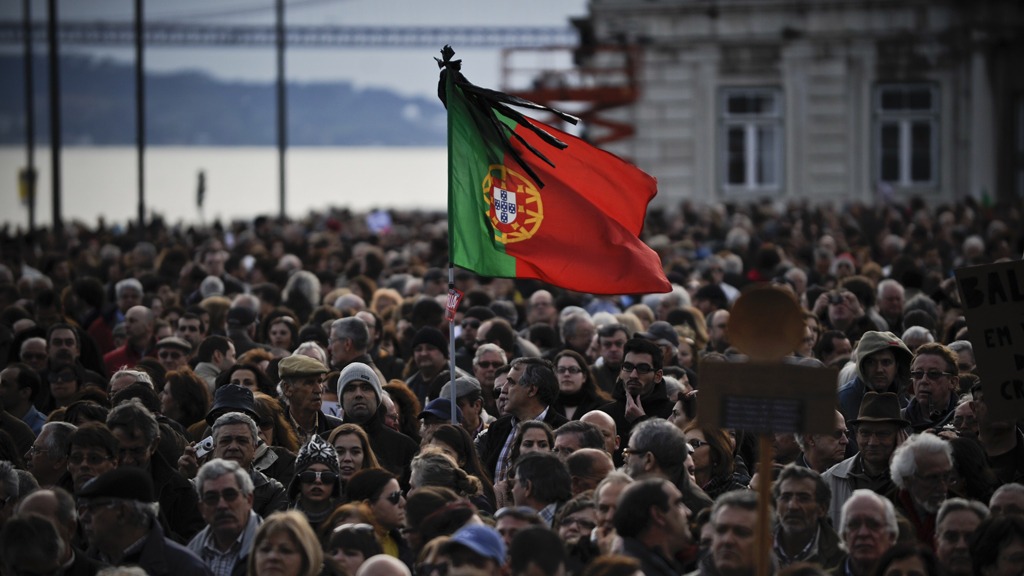Reprise: the return of the protest song
The music that was the backdrop to Portugal’s transition to democracy almost 40 years ago is making a comeback on the streets of Europe, as 20-year-old Portuguese student Joao Lima writes.

Grândola, swarthy town
Land of fraternity
It is the people who lead
Inside of you, oh cityInside of you, oh city
It is the people who lead
Land of fraternity
Grândola, swarthy town
It’s a song which is embedded in the hearts and minds of Portuguese people, central to bringing democracy to the country 39 years ago. But now, in Europe’s current crisis and on the lips of its disenfranchised young people, it’s making a comeback.
Saturday 1 June is the date when people in more than 70 European cities will take to the streets and say “no” to what they see as endless and painful economic cuts.
The protests aren’t new – but the combined action across the continent, from Lisbon to London, is. And so is the soundtrack.
Music has always been a way of expressing disapproval and in a time of economic extreme, creativity sparks in people’s souls. So Portugal‘s protest song has become the European anthem against austerity.
Grândola Vila Morena (Grândola, swarthy town) was composed in 1964 by José Afonso to honour all those who gathered together in Grândola’s Village Association.
The small town used to be the host to some important meetings against fascism imposed in the country by António de Oliveira Salazar’s regime.
On 15 February 2013, the song was used for the first time to protest inside the National Assembly, making the Portuguese prime minister stop his speech and wait for the end of the protest.
Other similar protests have occurred against other members of the Portuguese parliament in their own public appearances. When the prime minister was silenced in the “House of Democracy”, Helena Valenciano, vice-president of the Spanish Labour party, acclaimed that the song was an “anthem against Brussels austerity”.
Since then the song has taken Europe by storm. On 2 March 2013, in one of the biggest protests ever organized in Europe, the song featured in the streets of its home country, but also in most other corners of Europe.
People around Europe have translated the music to English, Spanish, German, Finnish and several other languages. Outside Europe, the music has also been used in Brazil, Japan and Portuguese African speaking countries.
Since it was played on the radio on the night of 24 April 1974, the lyrics have gained a status of an anthem to freedom.
The Revolution of Carnations was the last political revolution in 20th century Europe.
Grândola opened the door for democracy in Portugal. It still has a huge emotional impact in Portuguese culture and on its people. Now it is once again being used to show disbelief and protest against the current political direction.
Watch below – Grândola sung in Lisbon in March, and then below, the German version.